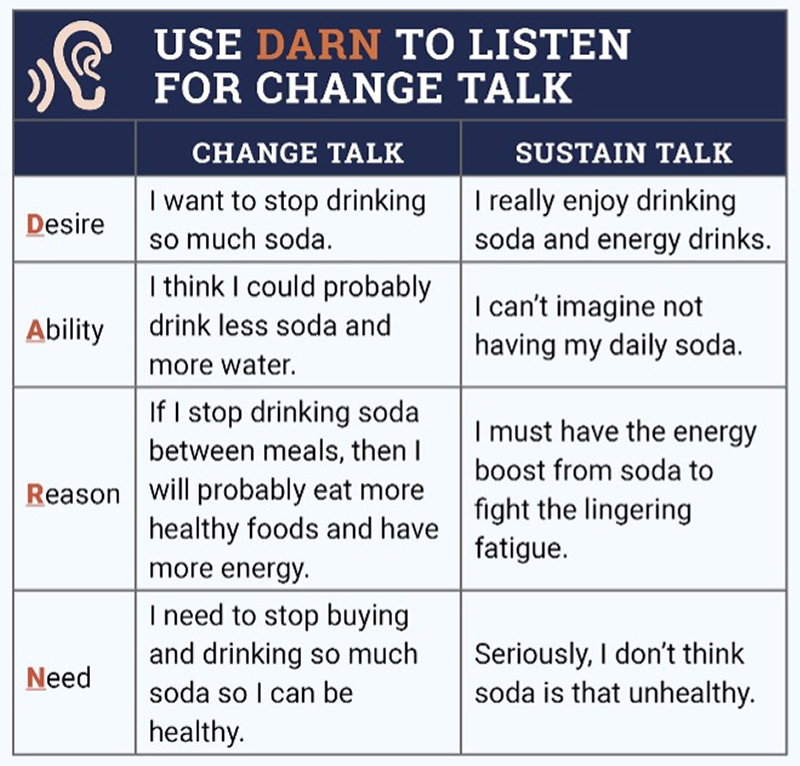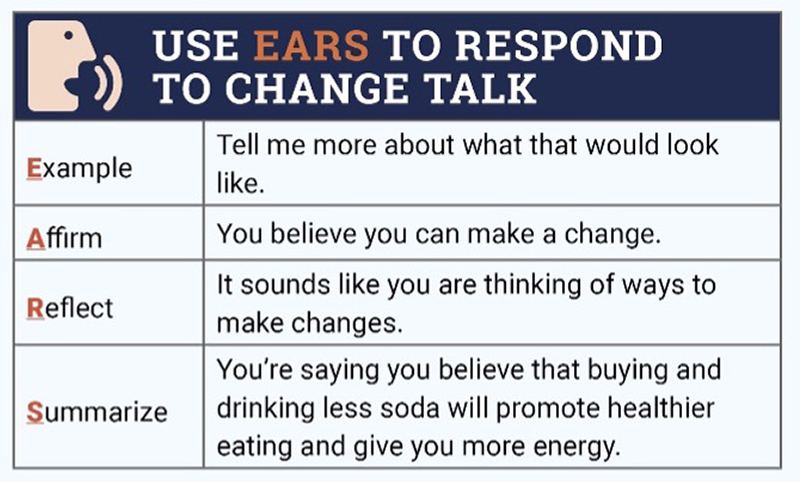The physical and emotional side effects of cancer treatments can force patients to make undesired lifestyle changes. After treatment ends, their friends and family may expect them to resume their former roles and activities, yet long-term effects can leave patients discouraged. When compared with healthy peers, cancer survivors experience higher levels of pain, depression, and anxiety, which can decrease their motivation to make healthy choices. Culture, coping style, and socioeconomic status may further compound the issue.

Motivational interviewing (MI) is an evidence-based communication method that assists people in identifying their reasons for change. Oncology nurses can spark patients’ motivation to move toward positive lifestyles by listening for change talk (i.e., comments supporting change) and sustain talk (i.e., comments supporting current behavior). The rate of successful change increases when the amount of change talk exceeds sustain talk. When you use MI with your patients, reinforce change talk and refrain from addressing or redirecting sustain talk.

Listening for and reinforcing change talk takes practice. DARN and EARS are two memory aids that can help you identify and respond to change talk (see sidebar). And recognize that change takes time: It’s harder to climb out of a hole than fall in it. Support others in making healthy and sustainable change by using MI strategies like DARN and EARS to listen for and encourage change talk.






